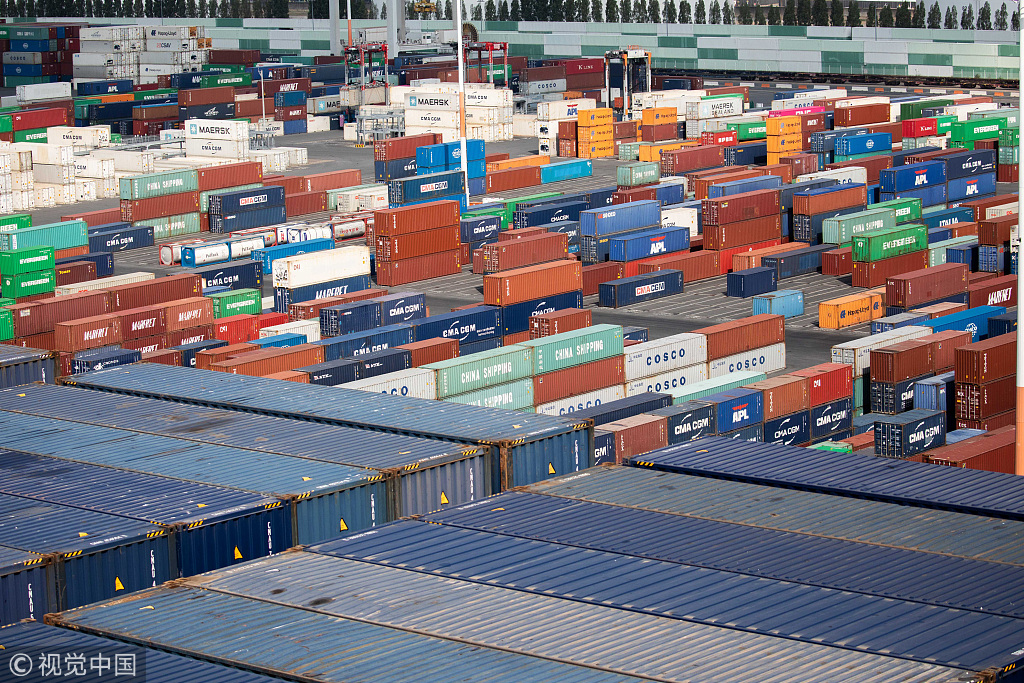When a factory in China wants to ship a container of goods to a client overseas, in Europe for example, step one typically involves ringing around a few logistics firms to get a quotation.
The person taking the call is usually a harassed clerk, sitting in a cube in the office of a freight forwarder located near one of southern China’s bustling airports.
The clerk will jot down the details and then dig through mounds of paperwork stored in giant, floor-to-ceiling filing cabinets. It can take days of phone calls and emails, across time zones, until a shipment can be confirmed.
Logistics in this part of the world is in many ways the “Land That Time Forgot”, according to Hong Kong entrepreneur Ivy Tse, who saw an opportunity to bring the industry into the internet and cloud computing age.
“There’s a big gap between customer expectations today and the traditional way of serving them, which involves a slow flow of information and lack of transparency,” said Tse, director of FreightAmigo in an interview last week in Hong Kong.
Partnering with logistics veteran Jimmy Chow, with 40 years of management experience in the multinational logistics industry, and finance expert Tyrell Siow, the trio founded an Expedia-like one-stop freight booking platform called FreightAmigo in Hong Kong last year.
Customers can use an app or website to get real-time quotes and compare prices for air and ocean freight with different carriers. Once they find an option they like, they can then book and pay online. The platform also offers insurance and a cargo tracking service. Today it generates over 40,000 quotes per quarter, which would have taken a manual clerk around three to four years to prepare, said Tse.
This online process may sound familiar to travellers who book their tickets on platforms such as Expedia, but it is relatively new to the logistics sector, which is in the early stages of bringing its traditional operations online.
For example, for every 80 travel-related searches in 2017 globally there was only one logistics-related query, according to a research by McKinsey & Co. last year.
FreightAmigo is not the first company to try and fill this gap. San Francisco-based Flexport was one of the earliest movers when it launched in 2013, and this year it raised US$1 billion, led by Masayoshi Son’s SoftBank Vision Fund and other existing investors including Peter Thiel’s Founders Fund and Chinese logistics giant SF Express.
Meanwhile, Chinese start-up Manbang Group, which matches truckers and shippers, is valued at USD 9 billion according to Chinese media, counting SoftBank Group, Alphabet’s CapitalG and state-backed China Reform Fund among its investors.
FreightAmigo hopes to compete with its bigger rivals by leveraging Hong Kong’s position as a regional logistics hub that connects different parts of the world, while its competitors may have bigger advantages in their domestic markets, Tse said.
The idea to create FreightAmigo came amid the city’s increased focus on adopting new technologies as it positions itself as a world-class smart city. Logistics, one of the city’s four pillar industries which contributes 3.2% of Hong Kong’s entire GDP, has been waiting for a digital upgrade for a long time.
The company also expects the Greater Bay Area (GBA), an economic blueprint that connects Hong Kong and Macau with nine Chinese cities in Guangdong province, as well as the Belt and Road Initiative, Beijing’s multibillion-dollar infrastructure and trade effort to boost connectivity, to bring new opportunities to the industry.
The platform is receiving more inquiries from Southeast Asian and even African clients, Tse said, and FreightAmigo is also considering opening up a new office in Shenzhen to make better use of the GBA initiative.
Online services offered by logistics firms globally are limited, according to the 2018 McKinsey report. Only 6% of the world’s largest ocean carriers and freight forwarders provide online bookings, and more than one-third of the ocean carriers and 5% of the freight forwarders do not even have an online quote service.
Moreover, most of those that offer online services only log an online request for a quote that requires further follow-up by emails or phone calls, the report showed.
For FreightAmigo, the biggest challenge to digitalise the process was to standardise the fragmented information in the industry, Tse said. For instance, there are over 1,500 types of charges involved in logistics, she added.
It took the team around two years to develop the system before launching it in the fourth quarter in 2018. The platform now covers 80% of the world’s shipping lines, and ships 200 tonnes of cargo each month, according to the company.
The ongoing US-China trade war has brought the logistics industry under pressure, with cargo volumes declining across the globe – and especially in the Asia-Pacific region.
Air cargo within Asia slumped 10% year-on-year in the three months ended June this year, the biggest regional drop, followed by Asia to North America with an over 5% decline, according to the International Air Transport Association.
However, FreightAmigo said it has not felt much impact as the company has focused on Europe and Southeast Asia since launch.
“The trade war had already started when we launched, and we anticipated pressure on China-US business this year and decided to look beyond that,” Tse said, adding that China-US business has accounted for less than 20% of total transactions on the platform each quarter since launch.
“Logistics companies are also looking for ways to find new customers and cut costs in the current environment, and a digital marketplace is an answer,” she said.
